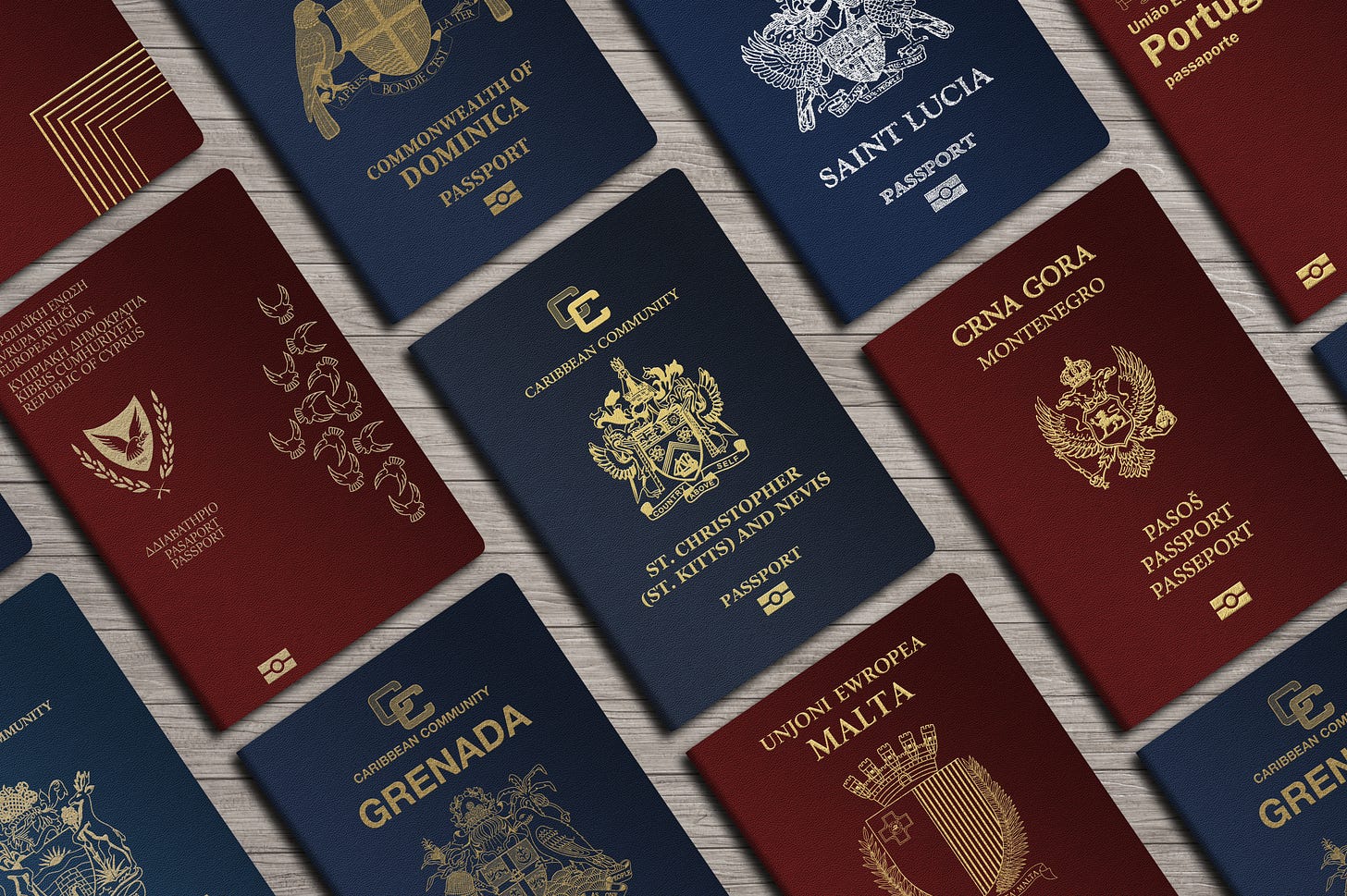Golden Visas, Dead Ends, and Dangerous Fantasies
What the Malta Ruling Means, Which Programs Still Work, and How to Build a Sovereign Identity That Lasts
Ponder this:
What if the passport you bought to escape the system was the first thing flagged by it?
For years, “Golden Visas” were sold as sovereign cheat codes: invest in a condo, a fund, or a tropical country no one can find on a map — and in return, get second residency or even a full-blown second passport. Fast-track your freedom. Or, for some, a contingency plan when home starts to feel less like a country and more like a threat.
Even America has gotten in on the game — corruptly, in my opinion — offering literal gold-colored visa cards bearing Donald Trump’s likeness. If I understand the proposal correctly, invest five million dollars in the U.S., and you’re on the path to citizenship. It echoes the U.S.’s EB-5 visa program, which offers residency to foreigners who invest $1 million (or $800K in high-unemployment zones) into American businesses.
So, the idea of “citizenship by investment” (CBI) isn’t new.
But the game has changed. Quietly. Decisively. And in ways the sales brochures won’t tell you.
As world systems deteriorate and state authority becomes more brittle, governments are pushing back — hard — to preserve the meaning of citizenship. That means cracking down on the commodification of national identity.
Take Malta, once the gold standard in EU citizenship-by-investment. For €750,000, you could buy a passport, skip the integration phase entirely, and waltz into Europe with full Schengen rights. Over 1,500 people took that deal. On paper, it looked clean. Legal. Elite.
Until April 2025, when the European Court of Justice ruled the program wasn’t just shady — it was illegal under EU law.
Why?
Because it treated citizenship as a commodity, not a bond. The court found no “genuine link” between these new Maltese “citizens” and the country itself. It was a vending machine — and Brussels smashed it.
And now?
I believe everyone who bought that passport holds a compromised document—legally valid but politically radioactive.
Already flagged in bank compliance systems.
Quietly scrutinized at EU borders.
Possibly non-renewable.
Probably worthless — if not today, then inevitably.
Here’s the reality:
Most of what’s being sold today as “global freedom” is fantasy wrapped in paperwork.
Golden Visas are collapsing as the global order fractures. The ones still standing are often unviable, unsafe, or misunderstood. And those that do work—the ones that matter—are slower, more complex, and increasingly under siege.
There are no easy answers here.
If you’re an American, it gets worse: a second passport won’t exempt you from IRS jurisdiction or FATCA. Use it the wrong way, and you won’t get denied — you’ll get indicted.
This article is your strategic overview of where things stand:
What the Malta ruling means
What countries still offer a viable path
Which programs are walking time bombs
And how to structure a real sovereign identity — before the doors shut
🔒 In the full post (for paid members):
What the Malta ruling means — and how it affects other Golden Visa holders
The difference between legitimate residency programs and “pay-to-play” frauds
Which countries still offer reliable pathways — and which are just selling you risk
Why Caribbean and Turkish passports are, in my view, monopoly money
How U.S. citizens can legally use second passports — and how to get in serious trouble
A strategic matrix to map your exit options by timeline, capital, and sovereign risk
Before you buy your escape plan, read this.
Because if your Plan B passport comes with a silent flag in the system, it’s not an escape.
It’s a liability.


